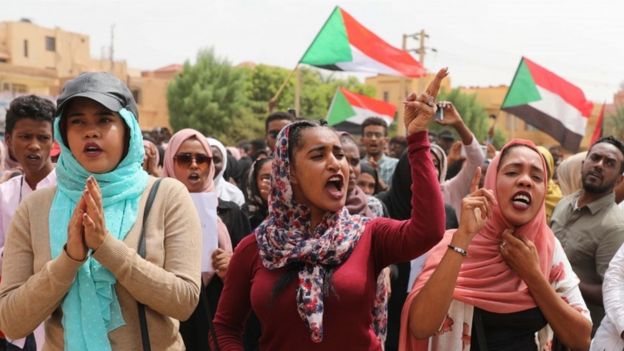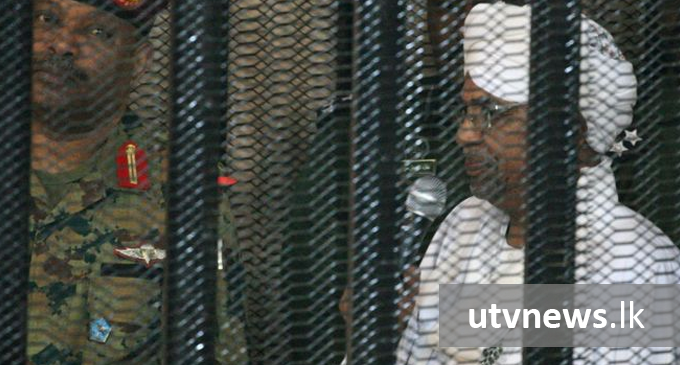(UTV|COLOMBO) – A detective has told a court in Sudan that former President Omar al-Bashir admitted to receiving millions of dollars from Saudi Arabia.
Mr Bashir appeared in court on Monday to face corruption charges, which his lawyers say are baseless.
He was ousted in April after months of protests, bringing an end to his nearly 30 years in power.
In June, prosecutors said a large hoard of foreign currency had been found in grain sacks at his home.
On Sunday, pro-democracy activists and the country’s military leaders, who had removed Mr Bashir, signed a deal paving the way for elections.
The former president, dressed in white robes and a turban, appeared behind a cage. He made no comment on the allegations, Reuters news agency reports.
He spoke to confirm his name and laughed when asked about where he was living, Reuters adds. He replied: “Formerly the airport district at army headquarters but now Kobar prison.”
Police investigator Ahmed Ali Mohamed told the court that Mr Bashir admitted to receiving $25m (£21m) from Saudi Arabia’s Crown Prince Mohammed Bin Salman.
He also said the 75-year-old former president got other money from Saudi Arabia.
Reuters quotes Mr Bashir’s lawyer Ahmed Ibrahim as saying that “there is no information or evidence with regards to the accusations of illicit gains aimed at Bashir”.
What are the corruption charges?
Mr Bashir faces charges related to “possessing foreign currency, corruption and receiving gifts illegally”.
In April, Sudan’s military ruler General Abdel Fattah al-Burhan said more than $113m (£93m) worth of cash in Sudanese pounds and foreign currency had been seized from Mr Bashir’s home.
The ousted leader had been due in court in July – but the trial was postponed for security reasons.
What other charges does Mr Bashir face in Sudan?
In May, Sudan’s public prosecutor charged Mr Bashir with incitement and involvement in the killing of protesters.
The charges stem from an inquiry into the death of a doctor killed during protests that led to the end of Mr Bashir’s rule in April.


The doctor had been treating injured protesters in his home in Khartoum, when police fired tear gas into the building.
What about the transition to democracy?
Mr Bashir’s trial will be seen as a test of whether the new authorities are able to deal with the alleged crimes of the previous regime.
On Saturday, Sudan’s ruling military council, which took over after Mr Bashir’s ousting, and a civilian opposition alliance signed a landmark power-sharing deal.
The agreement ushers in a new governing council, including both civilians and generals, to pave the way towards elections and civilian rule.
Mohamed Hamdan “Hemeti” Dagolo, widely regarded as Sudan’s most powerful man, has pledged to abide by its terms.
The members of the new sovereign council were supposed to be sworn in on Monday, but the ceremony has been postponed after a request from pro-democracy activists, the Reuters news agency quotes a military spokesman as saying. (BBC)
[alert color=”faebcc” icon=”fa-commenting”]Keeping up to date with breaking news while you are on the move is now simple with UTV Alerts [textmarker color=”8a6d3b”]Type REG UTV and send to 77000[/textmarker] on your Dialog, Airtel, or Hutch mobile connection[/alert]

